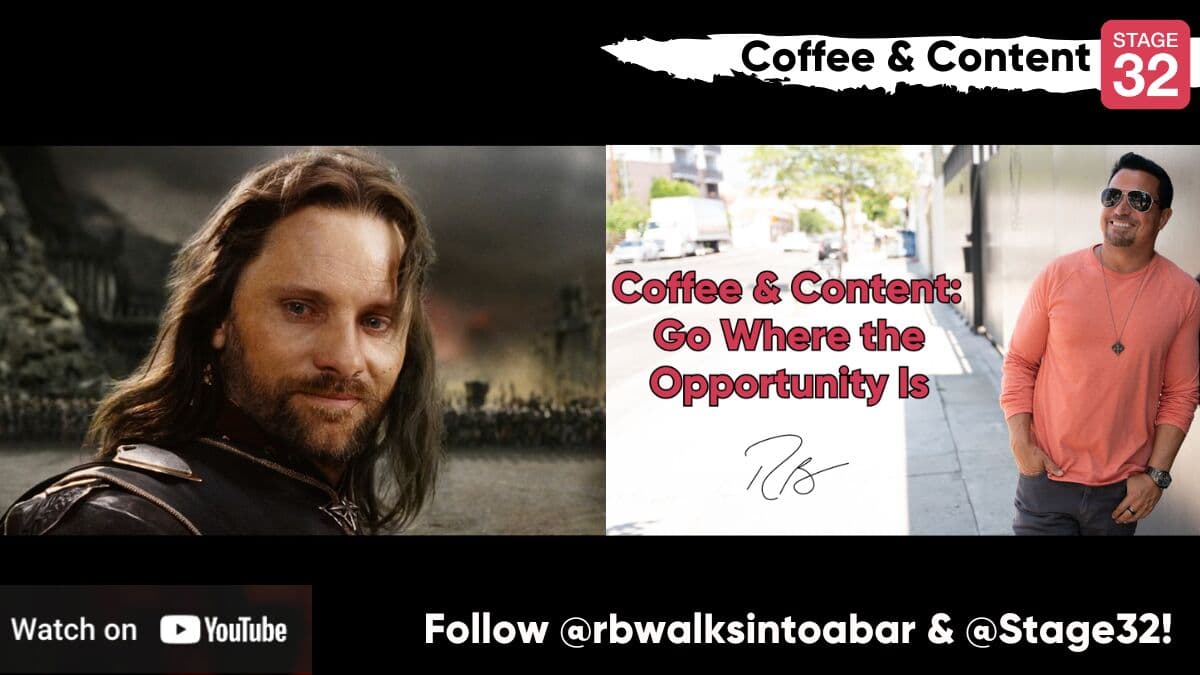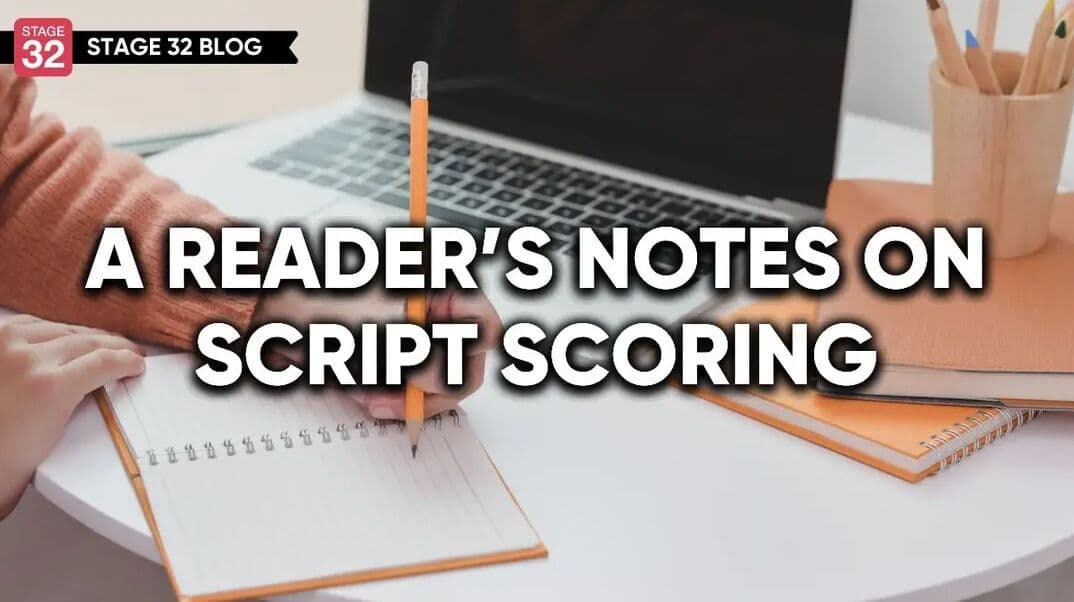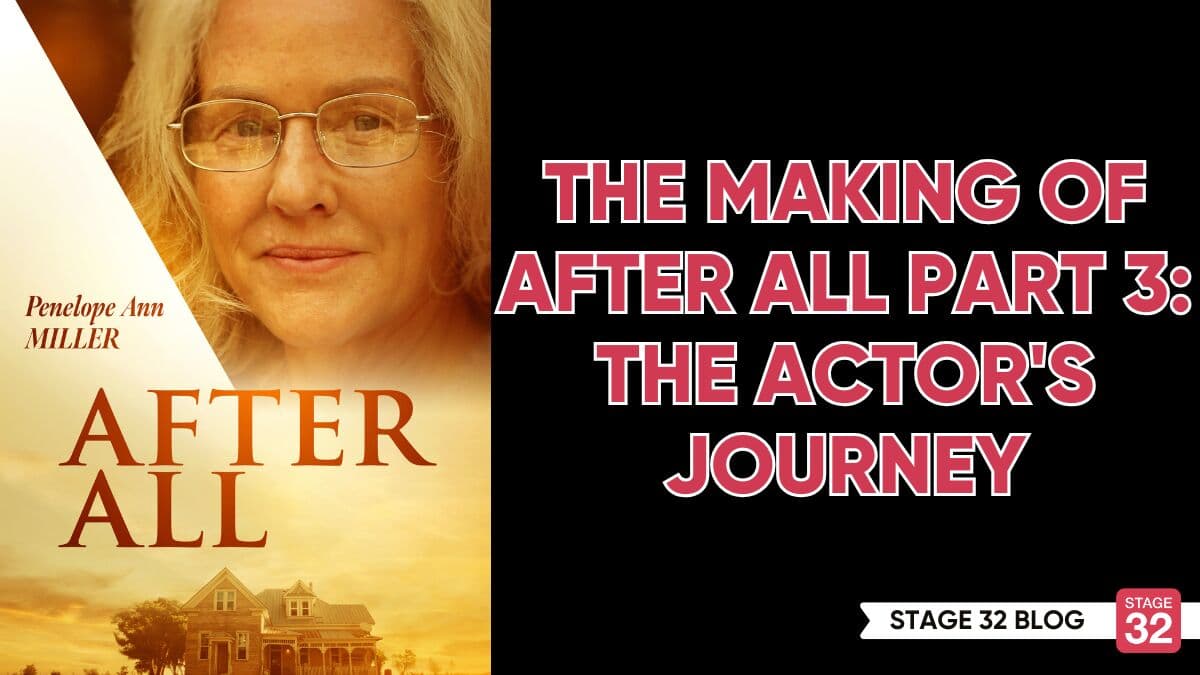6 Reasons You Should Turn Your Script Into A Podcast

6 Reasons You Should Turn Your Script Into A Podcast

Just a few years ago, COVID-19 hit, and people stayed home. Content was consumed at a fever pitch. Platform after platform, people were running out of things to watch! And it wasn’t just movies and TV. Gaming was more popular. Just ask anybody who tried to buy a Nintendo Switch or a PS5 at the height of the pandemic. People even read more of their emails than usual. And another industry that benefited from this frenzy of consumption? Podcasting.
One of the key pieces of advice you hear as a writer is “Make your own content.” “Shoot your own stuff.” But for one reason or another, it’s not practical for all of us to go out and shoot an independent feature or even a short. Here are six reasons why you should consider turning your project into a podcast.

1. Good Content Stands Out
We’ve all heard the phrase “everyone has a podcast” and it’s true, there are a lot of them. Over two million in fact, and approaching fifty million episodes. But there are also hundreds of millions of videos on YouTube and other streaming platforms, so in many ways your odds of getting noticed as a podcast are even are better, especially if you have a great project!
If it’s good, people will recommend it to others, and people will listen! Dirty John, Dr. Death, Homecoming, Limetown, Lore, and Up and Vanished all started as podcasts. Companies are optioning podcasts every day. It just takes the right set of ears to take notice.
2. It Doesn’t Take Much to Get Started
You can get a pretty decent microphone, stand, and pop filter for less than two hundred dollars. There are also some very straightforward all-in-one software solutions for recording and editing. If you have a Mac, you’ve already got Garageband and if you’re on a PC, there’s Audacity, which is completely free. Even if you’re not confident at editing audio, you probably know someone who is.
You want your name out there as a writer, and other people want their name out there for sound. Attribution, credits, and shared success can go a long way. That being said, there are a ton of great tutorials out there, and I recommend giving it a go. And that’s really it in terms of what you need to get going. Armed with a good script and some decent voices, you’re off to a great start.

3. You Probably Already Know Some Pretty Good Voice Actors
So hear me out on this one. We know not everyone can act in front of a camera. It’s a really tough thing to do well. And great voiceover talent is a whole other specialty all on its own. But If you or someone you know has young kids, I’m willing to bet you’ve used all kinds of silly voices and emotions when you read to them.
A lot of parents and other people who aren’t professional actors are pretty darn creative when it comes to bringing a voice to life. Cast them! They might not be ideal for lead roles or more in-depth dramatic parts, but if you have a lot of small roles to fill, it’s not a bad place to start. Often, people are a lot less shy with a microphone than they would be with a camera.
4. Your Talent Can Live Pretty Much Anywhere With Internet and Electricity
Unlike shooting a movie or TV, you don’t need any of your actors in the same place. In fact, there are lots of amazing utilities out there like Zencastr and plenty of others that make it easy to record together while being apart. A little bit of time-zone coordinating aside, you can potentially work with actors all over the globe.
It also gives you a lot of flexibility when it comes to your talent’s schedule. You can send your actors their part along with a recording of someone to read against if they need it, and let them record it whenever they’re able to. Someone may not be able to film with you due to scheduling conflicts, but they could be more than willing to record.
Depending on the situation, be prepared to ship out microphones and other equipment if needed, and try to make it as easy and convenient as possible to ship back. If you’re able to arrange delivery and pickup, that’s even better.

5. Your FX Budget is Basically Just Your Imagination
If you’re shooting your indie feature, you may not be able to blow up that row of buildings or have that alien invasion exactly like you imagined, if at all. In fact, you might find yourself compromising on some shots or holding back some of your best ideas for scenes out of the fear that they’ll make your budget too high, or maybe paying for CGI is a little out of your reach on a shoestring budget.
With podcasts, you can do anything you want! Hordes of invaders tearing through a village, explosions, giant monsters destroying a city, you name it. There are a lot of really great royalty-free libraries of sound effects out there, and with the right combination of sounds and some creative writing, absolutely anything can happen in your story. There really are no limits to what you can do or how imaginative you can be.
6. Your Story Can Take Place Anywhere
Does the first scene of your story take place in China, and then the next scene in New York? Doesn’t matter. Whether it’s a real place or somewhere completely imaginary, or any era in the past, present, or future, it doesn’t matter. If you can write it, you can do it.
You’re not flying anyone anywhere, you’re not securing shooting permits or trying to lock down locations. But do make sure you’re careful about sounds and names. If you’re recording live audio in the field, it can be great for texture, but be really careful about music playing from someone’s car window, clips from, other copyright media, etc.

Some General Things to Keep in Mind
You have to write differently.
You’re still showing and not telling, but you have to show by telling, which might sound a little confusing. Dialogue-driven pieces work really well in audio format, but you can do anything. You just have to get creative.
You might find that your characters talk to themselves a bit more than they normally would. Narration can work really well if done correctly. Too much in one direction and you start to sound like an audiobook. And there’s nothing wrong with that! But podcasts have so much room for creativity. If you want a real masterclass in audio storytelling, go and listen to Orson Welles’ War of the Worlds Radio broadcast.
You can even experiment with things like binaural audio and ASMR. Also, you’re going to want to write with ad breaks in mind. Think of places in your story where you can naturally stop for a minute or two and insert an ad. If it’s a shorter episode, you may be able to get away with an ad or two up front, but for longer episodes, it’s helpful to start thinking about where you can squeeze in an ad or two if you’re fortunate enough to get sponsors. And there’s a good reason for that.
Podcast hosting usually isn’t free.
Many people don’t realize this, but Apple, Spotify, etc., don’t store your content for you, they’re just the distribution platform. It’s up to you to find a service to host your content and provide an RSS feed. Most of them will charge monthly, but you should pay attention to things like what analytics they provide, how much storage they offer, how much bandwidth you’re getting for your payment, and the information you need to provide to get your podcast listed on the various platforms.
At first you might find that you need very little storage or bandwidth, but if your audience grows quickly, you’re going to need to scale to keep up, and this can get expensive. This is where a podcast network can be immensely beneficial.

Podcast Networks.
If you can get your podcast onto a network, you’ve got a huge advantage from the start. They’ll handle a lot of the advertising, promotion, and distribution. But if you’re thinking about pitching to a network, you shouldn’t think of it any differently than you would if you were pitching a series to a studio or other platform. Most places won’t accept unsolicited submissions, so don’t spam the emails or social media of team members.
A simple inquiry or polite email can go a long way, but try not to pitch your idea unless you’re invited to. If you do land that meeting or Zoom call, come prepared. Have a full series outline ready. Have at least one completed episode ready for a listen, and scripts for at least several more. Mood books and series bibles can really help establish the tone that you’re going for and give the development team an idea of how your vision could play out as a series.
At the end of the day, podcasting is only going to keep growing in popularity. People can listen anywhere. On their commute, at the gym, on their lunch break, during an afternoon run, you name it. It’s a great way to potentially get your story heard by a lot of people and really flex your creativity as a writer and creator. You might even have an old script or two lying around that you can knock the dust off of and think about how it might work as a podcast.
Let's hear your thoughts in the comments below!
Got an idea for a post? Or have you collaborated with Stage 32 members to create a project? We'd love to hear about it. Email Emily at blog@stage32.com and let's get your post published!
Please help support your fellow Stage 32ers by sharing this on social. Check out the social media buttons at the top to share on Instagram @stage32 , Twitter @stage32 , Facebook @stage32 , and LinkedIn @stage-32 .
About the Author

Matthew Riddle
Story Analyst, Editor, Screenwriter
I write Podcasts and stories.





